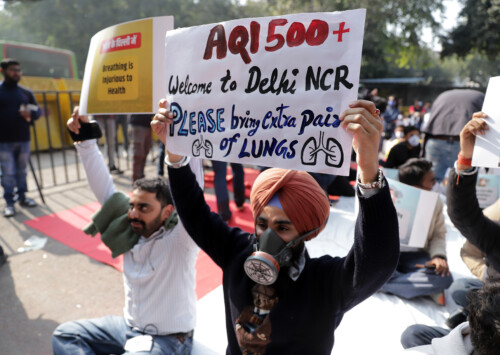Foreign university campuses in India reshape student choices and standards
Foreign campuses gain ground in India

University of Southampton campus will offer degrees in fields such as computer science, business, finance and economics, all aligned with the United Kingdom’s academic standards
With several foreign universities setting up campuses in India, the country’s higher education environment into India is getting reshaped. While it offers new opportunities for students, it also puts increased pressure on domestic institutions to improve their performance. Though Indian campuses may not completely replace the appeal of studying abroad, they do open up a promising middle path, getting closer to a world-class education without leaving home.

University of Southampton campus will offer degrees in fields such as computer science, business, finance and economics, all aligned with the United Kingdom’s academic standards
Over the past year, a growing number of foreign universities have begun establishing campuses in India, marking a significant shift in the country’s higher education landscape.
This trend, facilitated by policy changes under India’s National Education Policy (NEP) 2020, offers a new set of opportunities for students aspiring to study abroad. It also brings opportunities for domestic colleges for competition and collaboration with their foreign counterparts.
One of the most notable developments is the University of Southampton from the United Kingdom opening its campus in Gurgaon, near Delhi, where classes began in September. The campus will offer degrees in fields such as computer science, business, finance and economics, all aligned with the United Kingdom’s academic standards. Students enrolled in the Gurgaon campus will also have the opportunity to spend up to a year studying at the university’s campuses in the UK or Malaysia. The Gurgaon campus has already attracted applications from students not only across India but also from countries like Nepal, Sri Lanka and the United Arab Emirates.
This move is not isolated. The University Grants Commission (UGC) has approved Letters of Intent for five more well-known global institutions to establish campuses in India by 2027. These include the Illinois Institute of Technology in the United States, the University of Liverpool in the United Kingdom, Victoria University and Western Sydney University, both in Australia, and the Istituto Europeo di Design in Italy. Separately, Australian universities like Deakin and Wollongong have launched campuses in GIFT City, a Special Economic Zone near Gandhinagar in Gujarat, and more are expected to follow.
These developments signal a fundamental shift in how Indian students might approach their higher education plans. Traditionally, many students viewed studying abroad as the only route to access high-quality international education. But with these foreign institutions now offering globally recognised degrees at home, that perception could change. For many families, especially those concerned about the rising cost of overseas education, this provides a more affordable and accessible option. Tuition fees for these Indian campuses are expected to be around 25 to 30 pc lower than what students would pay abroad. Moreover, additional costs such as travel, accommodation and visa fees can be avoided altogether.
“We can already see the shift in how students weigh their options nowadays. The presence of foreign universities in India is definitely reshaping student choices. Traditionally, there were only two options, either stay back in India or go abroad to get access to world class education. But the establishment of reputed foreign universities in India are letting students to get similar learning opportunity in their home country itself. Students who were otherwise restricted by high costs or visa hurdles now have alternatives within India. However, some students still opt to go abroad for a better lifestyle,” Amal Raj K, Chief Marketing Organisation, SVA Future Steps, a professional education counselling firm, based in Bengaluru, tells Media India Group.
For students, the convenience and affordability of studying closer to home without compromising on the quality of education is undoubtedly attractive. Some universities have also relaxed traditional admission requirements. For example, Southampton University’s Indian campus does not require students to take English proficiency exams like IELTS or TOEFL, which can be a financial burden and a source of anxiety for many applicants.
“The aspiration of studying abroad is not just about academics, it is about exposure, networking and cultural experience. The ones who want a change, a different lifestyle and want to pursue education somewhere other than their home country might choose to go overseas,” adds Raj.
However, the experience of studying abroad is about more than just academics. Many students choose to study in a foreign country to gain exposure to new cultures, build international networks, and develop independence. These experiences may not be fully replicated on Indian campuses, no matter how globally aligned the curriculum might be. This means that for a section of students, particularly those focussed on cultural exchange and career prospects overseas, the appeal of studying abroad will still remain strong.
“I am aware of the upcoming campuses, but it has been my dream to study economics in London and I am working hard towards it and want to pursue that course in that city. It is more than just about the university for me, it is about that experience of living abroad in another culture, in another city,” Anchal Misra, a student aspiring to head overseas, tells Media India Group.
The growing presence of international institutions in India also brings a new level of competition for existing Indian colleges and universities. Domestic private colleges, especially those offering similar courses, may find it challenging to retain their student base unless they innovate or upgrade their offerings. But, this competition could be healthy, it might encourage Indian institutions to improve academic quality, update curricula, strengthen research, and seek partnerships with international players.
“I think this development has put pressure on Indian universities to raise their standards. When students compare, they will question the curriculum, teaching methods, global exposure and placements. While the very top Indian institutions may hold their ground, universities will feel the competitive push to improve quality, industry linkages, and even faculty recruitment,” says Raj K.
For forward-looking Indian universities, there is also an opportunity here. Collaborations, joint degree programmes, and shared faculty development initiatives with foreign universities could raise their own global standing and make Indian education more competitive on the world stage. Institutions that have been granted the status of Institutions of Eminence by the Indian government, for example, already enjoy greater autonomy and could benefit from such international engagement.
The impact of these changes on student decision-making will likely vary. Some students may fully embrace the idea of a global degree at home, while others might still prefer the immersive experience of living and studying abroad. Parental influence may also play a role, with families seeing foreign campuses in India as a safer and more affordable alternative.
“From my interaction with students I got to know that even though many students opt to go overseas. There are still hurdles faced by students, especially in middle class families. But for many who wants quality education without the financial burden, foreign campuses in India will be a more preferred choice,” explains Raj K.









